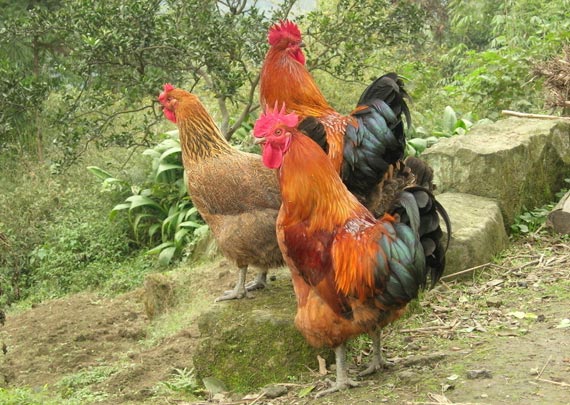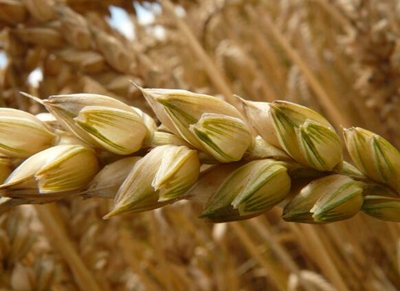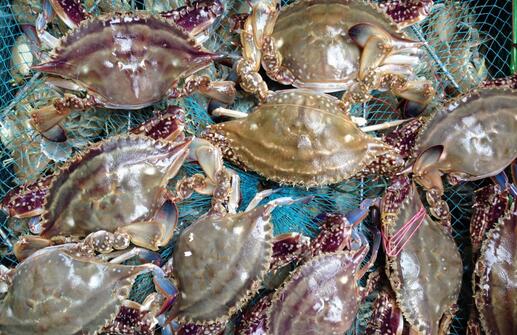Does raising native chickens make money? Why can't local chickens be sold in many places?

Why can't green food be sold in many places?
Native chicken, as a non-caged broiler, is generally popular in urban and rural markets for its delicious meat quality, and the price of chicken is generally higher than that of caged broilers, Rural Voice of China reported. In recent years, as a characteristic breeding, native chicken farming has blossomed all over the country.
However, in the past two years, with the increase of breeding capacity and production volume, the market of native chicken is gradually saturated, and the local chicken has been unsalable in many places this year.
In Dongfeng Village, Nonghe Town, Tonghe County, Heilongjiang Province, villager Liu Guofeng rented a piece of land under the scenic Huazi Mountain two years ago and began to raise Liangshan native chickens. Her Liangshan native chicken was snapped up last year because of its green breeding environment and breeding methods. Seeing the good prospects for development, Liu Guofeng raised money to expand the scale of breeding this year, but forgot to take into account how to sell at that time. Now most of the Liangshan native chickens, which have been farmed for more than seven months, have reached more than 4 jin, which is the fattest time, but at present, sales have become a big problem:
Liu Guofeng: last year, I raised more than 2000 chickens, all of which were sold. This year, I want to raise more. I think it should be easy to sell. As a result, only more than 4000 were sold, and there were more than 6000. Very worried, the chicken can not be sold, but also eat food every day.
It is not only Liu Guofeng in Heilongjiang who is facing the unsalable local chicken. Wu Yunkang, a poor family in Nanming Town, Jianhe County, Guizhou Province, received 500 chicken seedlings from the local town government in May this year. During this period, other poor families also gave Wu Yunkang more than 300 young chickens, thinking that these 800 native chickens could be sold at a good price and get rid of poverty as soon as possible. However, by October this year, these native chickens have grown up, but Wu Yunkang has not found a market. Wu Yunkang, villager of Nanming Town, Jianhe County:
Wu Yunkang: it's very difficult to sell now. We can't sell it. It's December now, and we only sell more than 50 pieces.
Wu Yunkang said: now is the time when these chickens have the best appetite, spending nearly 200 yuan on feed alone every day. Wu Yunkang mostly raises Roosters, who only eat feed and do not lay eggs. If they are not sold for a long time, the cost of chickens will become higher and higher:
Wu Yunkang: now it is very dangerous, the feed is empty, and there is nothing left to feed. Where can I get the land back? I have to put a lot of money into it.
The reporter learned from the Poverty Alleviation Office of Jianhe County, Guizhou Province that in 2016, a total of 147000 chicken seedlings were purchased in the county, and all townships distributed chicken seedlings to poor households in April and May. By September and October this year, the unsalable situation of chickens has attracted the attention of the county. Jianhe County began to encourage some public officials to buy chickens from poor households nearby, and contact the canteens of enterprises in the county to buy as much as possible, and at the same time expand the sales scope through some imported e-commerce enterprises, but the results are not satisfactory. Zhang Zhuting, deputy mayor of Nanming Town, Jianhe County, Guizhou Province:
Zhang Zhuting: for a while, I went to the whole market in Guizhou province. Because the whole of Guizhou Province is doing large-scale poverty alleviation, we are in the mountains, many farmers have no other experience, and there are a little more chicken raising projects, so we are crowded together.
The situation in Guizhou can be said to be the epitome of pheasant breeding in various parts of the country. In recent years, many places across the country have made great efforts to develop pheasant and pheasant farming relying on the advantages of local geographical environment, hoping that through characteristic pheasant breeding, local wealth and poverty alleviation will be driven. However, most of them only pay attention to the increase of breeding quantity, but ignore the mastery and analysis of market information, as well as the development and cultivation of the market.
Wang Yanhua, a specially appointed expert from the China Poverty Alleviation and Development Center, said that at present, there has been a surplus in pheasant farming with special features. On the one hand, local governments should actively help farmers find a market, on the other hand, they should actively introduce leading enterprises into industrial development to open up and cultivate a larger market for pheasant farming with characteristics:
Wang Yanhua: capital and society, that is, financial capital and social capital are absent here. This is a very important issue. In terms of this system design, what the government should do is to design relevant plans and provide relevant policies. Guide the direction of the industry.
Shi Qingcai, an analyst at the Shuitun Wholesale Market in Beijing, said that farmers themselves should also act actively to deal with various risks in the market:
Shi Qingcai: first, we should use the means of information technology to grasp the national market as comprehensively as possible, do not follow the trend, not blindly, and go on the market in the wrong way, so as to ensure that the planted things can be sold at a good price; the second is to make great efforts on the variety and structure; the third is to suggest that the broad masses of farmers join rural cooperative organizations or set up rural cooperatives to increase their ability to resist risks; fourth, to innovate in marketing channels and management methods. In addition, you can also try to insure against the loss of money caused by natural disasters.
- Prev

2017 Future wheat price trend forecast: wheat prices may rise sharply next year
2017 Future wheat price trend forecast: wheat prices may rise sharply next year
- Next

Why is there such a big difference in the price of sea crabs between the north and the south?
Why is there such a big difference in the price of sea crabs between the north and the south?
Related
- A course of planting techniques and methods on how to grow carrots
- How to plant the latest tulips?
- Is it better to pick tea in the morning or in the afternoon? When is the best time for tea to be picked? what is the third or fifth tea?
- Launch Yuanxiao Happy combination Haocha + Tea Yuan healthy Taste
- Penghu Tourism "Fireworks 20 Parade with You"
- 2022 West Lake Happiness holds "Digital Revitalization Voucher" and draws iphone13 and laptop.
- Banqiao Fuzhou social houses are designed to change start-up combined with police elimination to create a safe and livable environment
- The convenient measure of "mechanical weeding" in Xinbei has been abused and the Agriculture Bureau has imposed heavy penalties on the illegal land consolidation.
- Changgeng University Joins Hands with Four Memory Factories to Rescue Memory Talent Shortage
- The list of Taiwan's top 100 MVP managers is listed by the Director-General of the Farmers' Association of Sanxia District.

